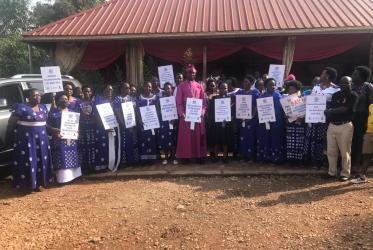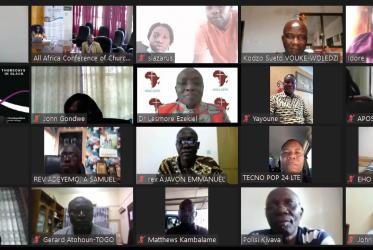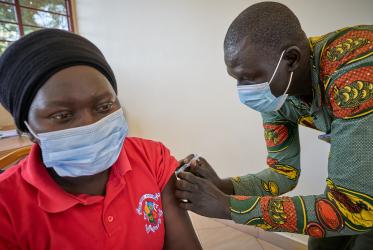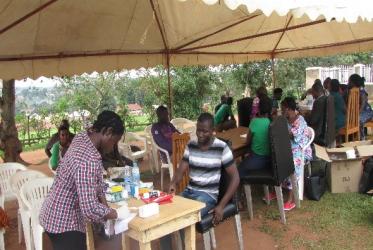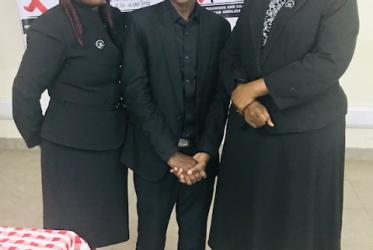Displaying 1 - 20 of 27
COVID-19 in conflict zones: “a crisis within another crisis”
27 November 2020
Youth leaders: “We will stop at nothing” to end HIV and violence
17 October 2019
Frontline advocates in Uganda are putting a stop to HIV stigma
16 September 2019
WCC treatment manuals address HIV challenges in Uganda
02 August 2019
Ugandan Mothers’ Union leader helps overcome HIV
31 October 2017
Women in development create space for hope in Egypt
15 June 2017
